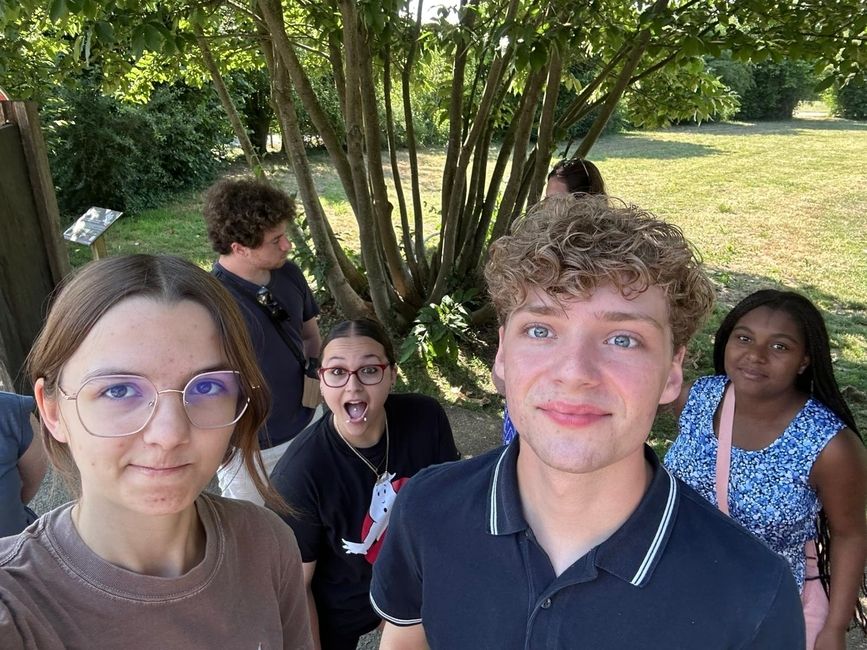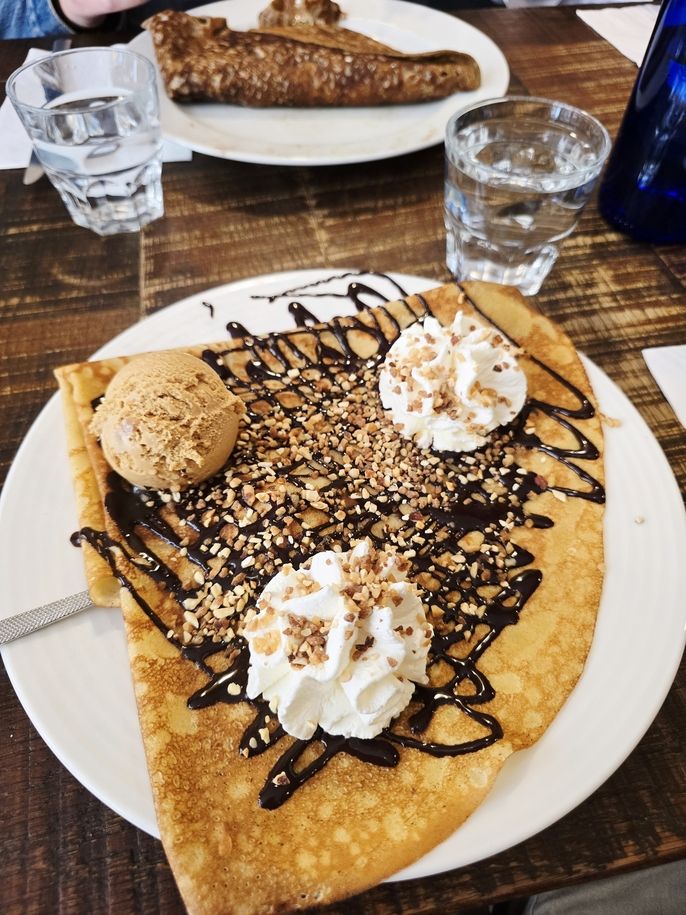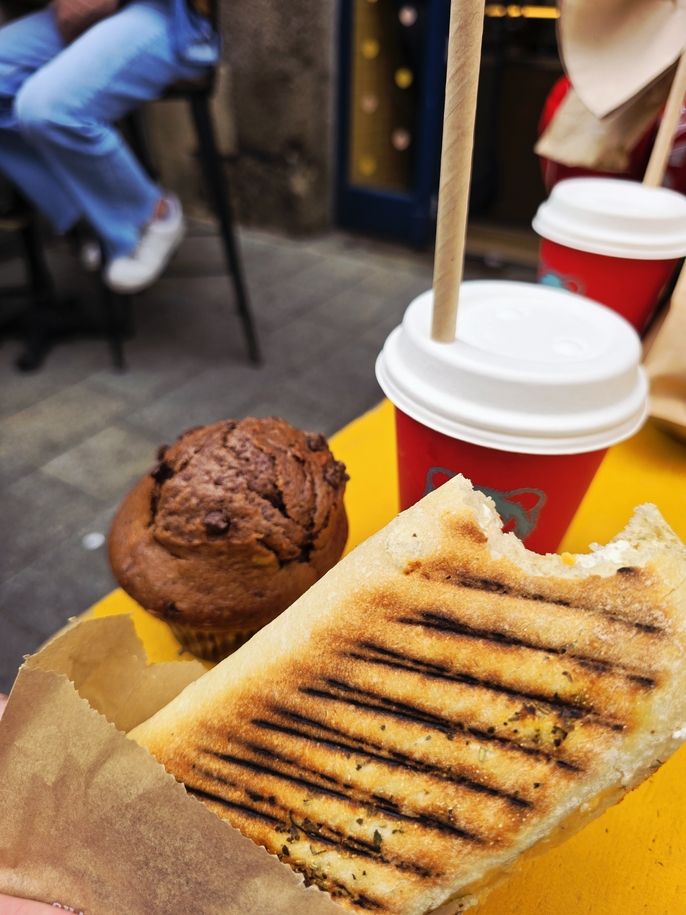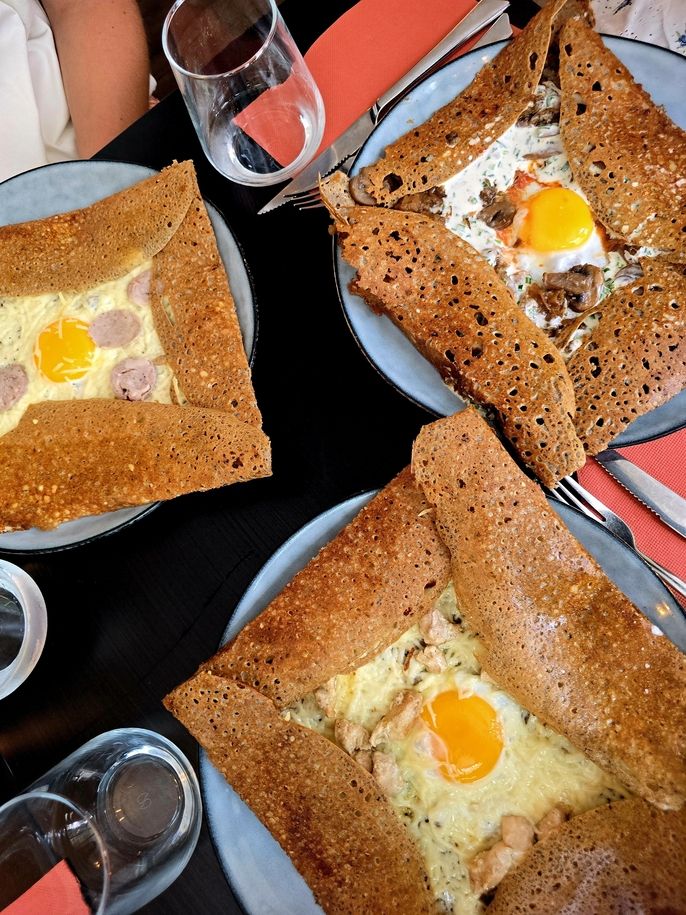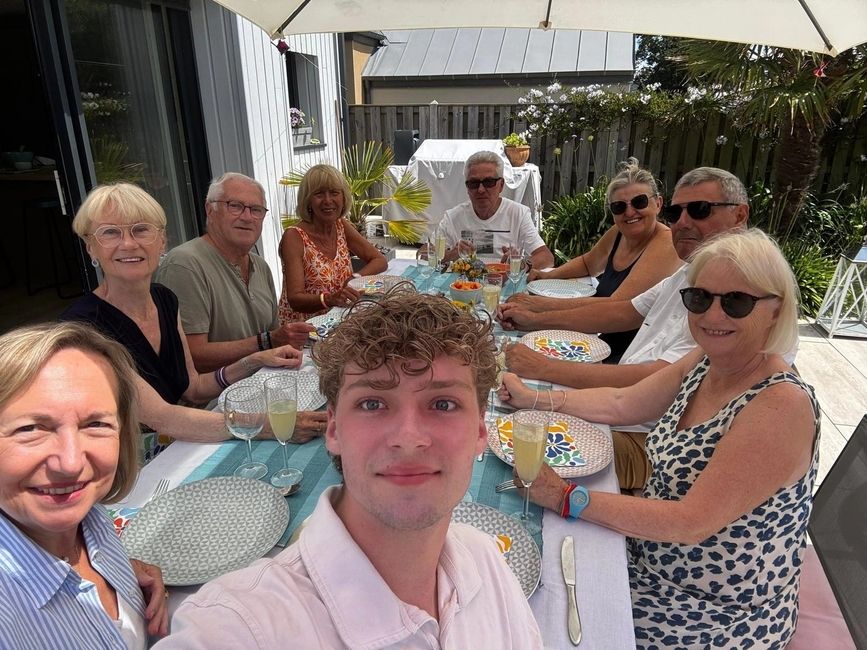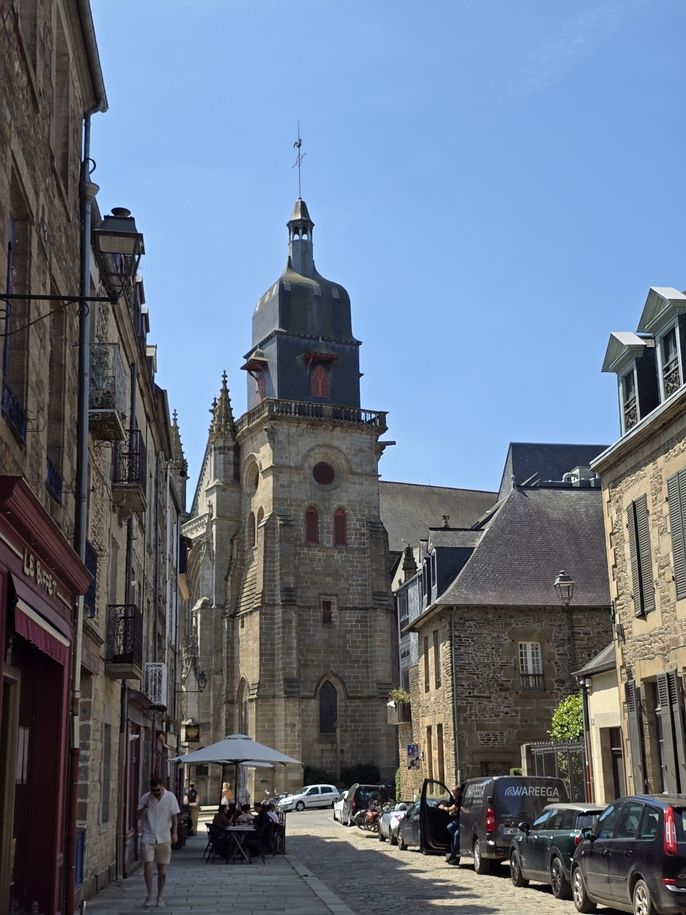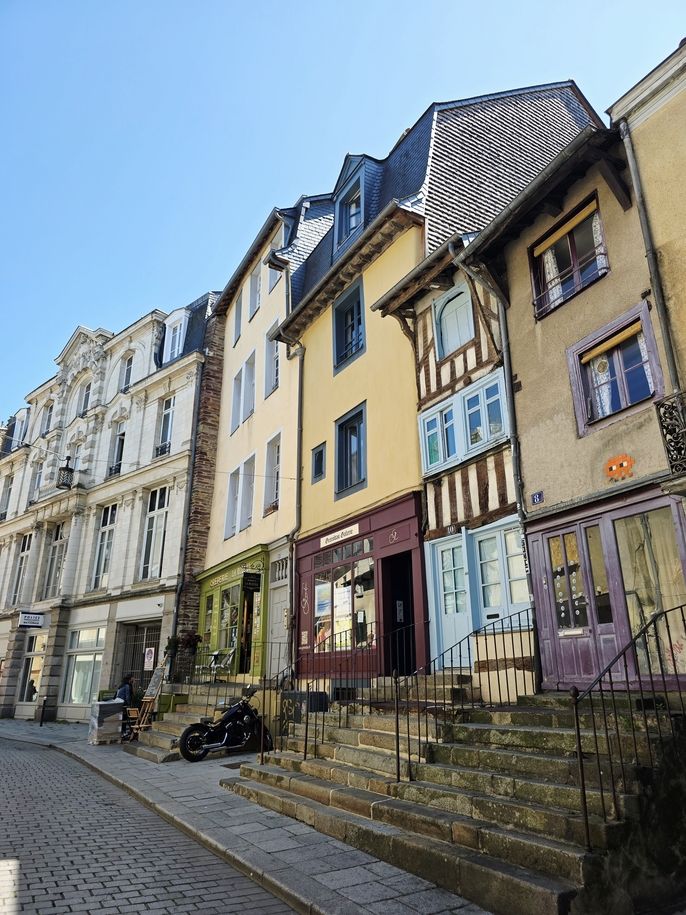Navigating La Vie Française : French Ways of Thinking, Being, and Interacting
Aha ! I’ve arrived in France, and I can’t wait to start improving my French ! Little did I know, this experience would be about so much more than simply learning the language. Through such an immersive experience, I’ve begun to understand how the French think and interact.
Upon arriving, I could immediately feel a difference in the way people related to one another. I couldn’t put my finger on it at first, but then I realized: Why is no one smiling? This was a lesson I learned very quickly, especially when taking the metro. Unless you're trying to invite someone to speak to you, it’s best to simply look down and keep to yourself. The only way to learn this was by observing others and copying what they do. This strategy can be applied anywhere to avoid standing out and, in some cases, to help maintain your safety.
It’s important to remember that French immersion isn’t just about language, but about diving deeper into a distinct cultural framework, one that affects thought, daily life, and social engagement. Through discussions with my host family, it became clear that the French value intellectual discourse. They enjoy exchanging ideas and perspectives, and they’re not afraid to share their opinions ! However, it can be easy to misinterpret their direct and frank way of communicating, so it’s important to make an effort to keep an open mind.
These thought patterns show up in daily life and values. For example, the French have a strong relationship with food. There’s a real emphasis on shared meals with friends and family, quality ingredients, and taking time to eat. This was one of the hardest adjustments for me—and I think most Americans can relate, as the U.S. is very fast-paced when it comes to meals. The French enjoy taking their time to eat and to talk about their day and what’s happening in the world. I often found myself with a clean plate while everyone else was only halfway through their meal. Over time, though, you can learn to appreciate the slower pace around meals and leisure. And you can’t forget one of the most important parts: l’apéritif! This is simply the appetizer before lunch or dinner, and while it may not seem essential, it’s a key social ritual in French culture.
It’s also important to understand French social dynamics through communication and etiquette. The use of tu and vous is crucial to get right, especially at the beginning. Starting with vous is always the safe and respectful choice ! The French appreciate politeness and often greet one another with Bonjour or Bonsoir. When entering a store, a room, or even a bus, greeting people isn’t just polite, it’s woven into the fabric of French culture.
Unlike some cultures where close proximity indicates warmth or a strong connection, the French generally value a bit more distance, especially when first meeting someone or in public. Imagine a slight, almost imperceptible “bubble” around each person. Standing about an arm’s length away during conversation is usually the norm. Leaning in too closely or initiating physical contact beyond an initial handshake (like a bise/bisou) can feel invasive. While it involves physical closeness, the bise is a ritualistic greeting, not an invitation for further intimacy. Knowing when and how many “kisses” (usually an air kiss with cheek-to-cheek contact) to give depends heavily on region and relationship. As a general rule: observe first ! If someone offers their cheek, reciprocate, but don’t initiate unless you’re sure it’s expected, especially in formal or new situations. A firm, brief handshake is always a safe and respectful bet when meeting someone for the first time.
Lastly, always remember to keep an open mind. France may appear familiar in some ways, but it’s important to observe and adapt to the culture. Try not to view cultural differences as “weird” or “wrong”; they're simply different. And often, they’re just another beautiful way of living !
Aiden Allgire
Swarthmore College
CIEE-Rennes Summer Intensive French Language
Related Posts

Top 5 Summer Service Work Programs Abroad for College Students
Ditch the usual summer plans and do something that makes a difference. Service abroad gives you the chance to explore new places, meet amazing people, and make a real impact... keep reading

The experience as a whole
If you told me 3 months ago how much my outlook on life has changed after this experience, I wouldn’t have believed you. My decision to spend my summer in... keep reading

French Cuisine and Food Culture
What do you picture when you think of French cuisine? Croissants, crêpes, wine, and maybe escargot? During my stay in Rennes, I’ve gotten the chance to experience French cuisine and... keep reading
